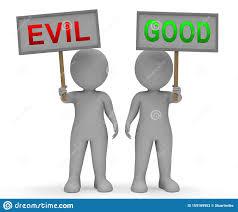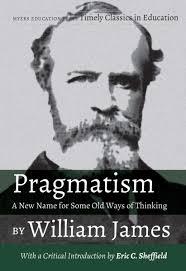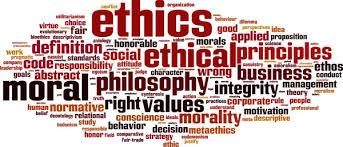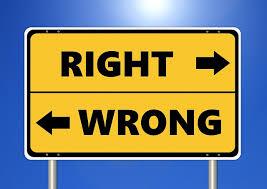Emails between Trump’s Chief of Staff Mark Meadows and Ginni (Mrs. Clarence) Thomas, recently revealed, strategized to overturn the 2020 election. Meadows called it “a fight of good versus evil.”

Did he really believe that? He’s a very intelligent man. Moral judgments can differ. Today’s two American parties each believes itself battling for good against evil. Many Russians view their Ukraine invasion that way. How do we know what’s really right?
In the big picture of human history, we’ve actually made much moral progress, people in general are better than they once were, with societal norms improving. Though of course we’re still far from perfect, often misjudging right versus wrong.
Some might say it’s all subjective, there are no moral verities or absolutes. All just arbitrary human constructs. That seems nihilistic. While it is true no moral guidelines are built into the fabric of the Universe, and we’re on our own constructing them, that doesn’t mean it’s arbitrary. We can use our reasoning minds to apply some compelling basic precepts.

Call the first factualism. There is such a thing as reality, as truth and falsity, and they matter. Judgments premised on falsehoods can only result in unintended outcomes. You cannot get moral clarity from muddled facts. Only by dealing with actual reality can we hope to do right.
Biden’s election was not fraudulent. Ukraine is not a nest of Nazis. Those are facts.
“Wishing doesn’t make it so” is folk wisdom. Yet many people believe things because it suits them. Lincoln used to say, “If you call a dog’s tail a leg, how many legs does it have? Four! Calling a tail a leg doesn’t make it one.” But we’ve got a lot of five-legged dogs running around, and those who love them. And others who benefit from that.

Thus one key factual matter is people’s motives, with great bearing on assessing their moral claims. Get the motives wrong and you’re in trouble. Is Putin really motivated to “denazify” Ukraine? Was Trump motivated to protect American election integrity? Or to subvert it, to stay in office and, especially, to avoid facing the humiliation of losing?

My wife and I have been reading together a book discussing the philosophy of pragmatism expounded by William James and John Dewey. It saw a person’s beliefs as valid not based on mirroring reality but, rather, if the beliefs somehow work for the person. Mainly, this was an effort trying to justify belief in God. But religion, grounded in a fundamentally false construct of reality, can only lead us into a moral wilderness, as history has repeatedly proven. Russia’s church totally backs Putin’s regime and its “godly” war.
So facts are fundamental. Also fundamental is the question, what makes rightness? Again, no such concept is built into existence. But we can start by realizing that ultimately the only thing that can matter is the feelings of beings that feel. Thus rightness consists in what promotes happiness and curbs suffering. And in this accounting, all people stand equally. A corollary is that all have rights to decide some things for themselves. The principle might be called humanism or universalism.
It’s not instinctual, for us evolutionarily tribalistic humans, programmed to view different folks very differently. Nazis believed they were serving the greater good by purging people deemed inferior (which also violated factualism). Putin too speaks of “purifying” Russian society by ridding it of — well, its factualists.

There’s also the perennial conundrum about ends justifying means. A strict utilitarianism — “the greatest good for the greatest number” — might sanction anything that increases the overall quantum of wellbeing even if creating some suffering. Justifying, say, killing someone to harvest their organs to save multiple others. But that contravenes the principle of all people equal in worth, with rights over their lives; no way to maximize overall happiness. Who’d want to live in a society where your organs can be taken?
Some Trumpers who plotted what was really a coup engaged in ends-justifying-meansism. Willing to torture truth and torpedo democracy in order to keep Trump in office. Even if you thought those ends worthy, surely the means were inimical to the greater good, again flouting both factualism and the principle that all people (including Democrats, and their votes) stand equally. Yet many Republicans continue down that road.

Honor factual reality. Honor individual human dignity. That’s how to tell right from wrong.
